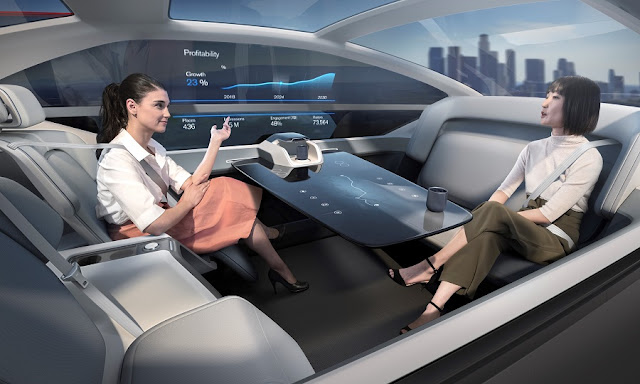The Future of Mobility: Exploring the World of Autonomous Cars
 |
Autonomous Car |
The world
of transportation is on the verge of a groundbreaking transformation as Autonomous Car, once a concept confined
to science fiction, become a tangible reality. The future of mobility is being
reshaped by the development and integration of self-driving vehicles, promising
a host of benefits that extend far beyond mere convenience.
Autonomous Car, or self-driving vehicles, are automobiles equipped with advanced sensors, artificial intelligence, and computing power to navigate and operate without human intervention. They hold the potential to revolutionize the way we travel, offering increased safety, enhanced efficiency, reduced congestion, and improved accessibility. One of the primary advantages of autonomous cars lies in their potential to drastically reduce accidents caused by human error. According to the World Health Organization, over 1.35 million people die each year due to road traffic accidents. By eliminating the element of human error, self-driving cars can significantly decrease the number of accidents, potentially saving countless lives.
According To Coherent Market Insights, “The Global Autonomous Car Market Was Valued At US$ 75.43 Billion In 2021 And Is Predicted To Exceed US$ 1,533.70 Billion By 2030, Growing At A 39.9% CAGR Over The Forecast Period (2022-2030).”
Moreover, Autonomous Car have the capacity to optimize traffic flow and reduce congestion. With their ability to communicate with each other and respond instantaneously to changing road conditions, self-driving cars can improve traffic efficiency by minimizing sudden braking, accelerating uniformly, and maintaining consistent speeds. This could lead to reduced travel times, decreased fuel consumption, and a more environmentally friendly transportation system. In addition to safety and efficiency, autonomous cars hold great promise in terms of accessibility. For individuals with disabilities or those who are unable to drive, self-driving cars offer newfound independence and mobility.
Autonomous Car such as taxi and ride-sharing services can provide a reliable and affordable means of transportation for those who currently face mobility challenges. The future of mobility also brings forth new opportunities and challenges. As self-driving cars become more prevalent, the landscape of urban planning and infrastructure will need to adapt. Dedicated lanes, smart traffic signals, and advanced communication systems will be essential components of a seamlessly integrated autonomous vehicle network. Autonomous tractors are revolutionizing the agricultural industry by offering advanced capabilities and increased efficiency.
Another
area of focus is the legal and ethical implications surrounding Autonomous Car. Questions arise
regarding liability in the event of accidents, cybersecurity concerns, and the
need for regulatory frameworks that ensure the safe and responsible deployment
of self-driving technology. While the future of mobility holds tremendous
potential, there are still hurdles to overcome. Developing reliable and robust
artificial intelligence, improving sensor technology, and refining the
algorithms that govern autonomous vehicles are ongoing challenges.
Additionally, public perception and acceptance of self-driving cars will play a
crucial role in their widespread adoption.


Comments
Post a Comment